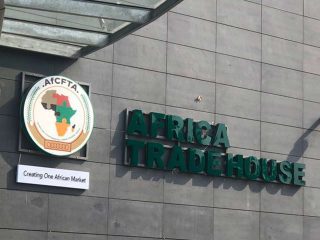Despite coming late into the regional trade pact involving 55 African countries, indications emerged yesterday that Nigeria is on the verge of losing out in the $450 billion African Continental Free Trade Area (AfCFTA) agreement. Emerging developments indicate that lack of preparedness and unnecessary tariff barriers are some of the factors already putting a wedge in the free run of the unprecedented trade fellowship aimed at boosting the continent’s Gross Domestic Product (GDP). Other foreseen challenges are general political instability, inadequate trade infrastructure, transportation, poor port facilities and inconsistent agreement among member states.
Goving indication to this effect yesterday in Lagos, a freight forwarder, Mr Francis Omotosho, said Nigerian economy was plagued by microeconomic challenged as a result of poor infrastructure, poor access to capital and increased contractions in the Gross Domestic Product (GDP) growth in the post- COVID-19 era.
He said this had led to competitive devaluation, adding that trade barriers were posing great obstacles to AfCFTA implementation. Omotosho, who spoke in Lagos at a day workshop organised by the Lagos State Council of the Nigerian Union Journalists on the challenges of AfCFTA on Nigerian business, explained that as Africa emerges a viable investment opportunity, demand had not driven supply, thereby increasing risks and reducing opportunities for investment in Small and Medium Enterprises (SMEs). He said: “Payment providers currently have difficulties providing services.
They include trade barriers manifested in form of discriminatory regulations, treatment of foreign providers, requirements for local incorporation, licensing, prohibition on cross border services or limitations in the movement of capital as well as intra trade barriers, difficulty in transmitting money from one country to another due to cross-border connection or the payment systems in either country.”




